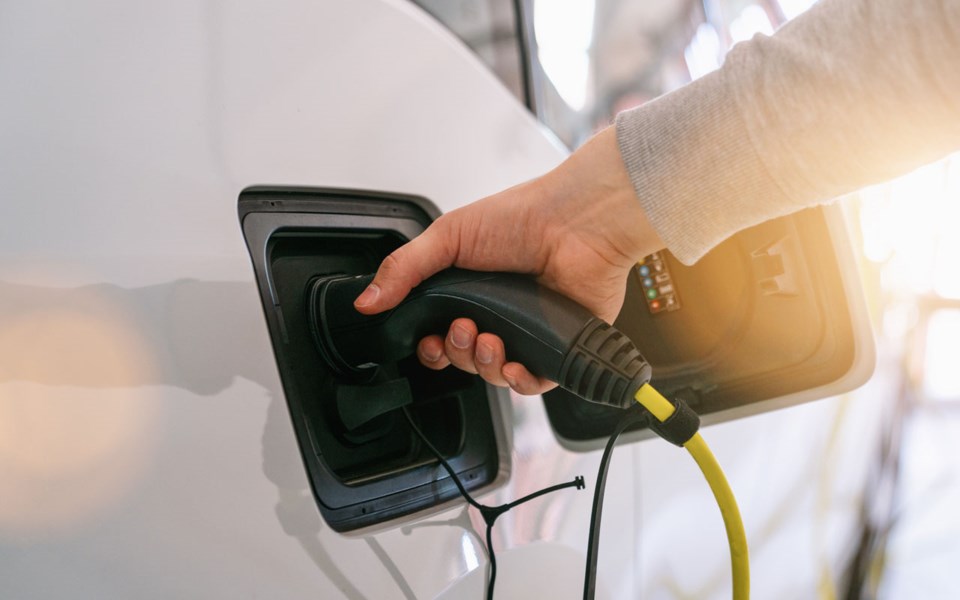In November 2018, the United States reached a milestone in the adoption of environmentally friendly transportation, as the 1 millionth electric vehicle hit the road in the country. At the time, Canada was home to almost 100,000 electric car owners.
With several jurisdictions establishing lines in the sand to embrace a near “carbon-free” economy, Research Co. and Glacier Media talked recently with non-electric vehicle owners in Canada and the United States. We sought to review their future purchasing behaviour, as well as to pinpoint some of the issues that may be deterring them from going electric.
In Canada, more than two in five non-electric vehicle owners appear ready to switch, with 42% saying that it is “very likely” or “moderately likely” that the next car they acquire for themselves or their household will be electric.
Male non-electric vehicle owners in Canada are more likely to believe that a “carbon-free” car is in their future (48%) than their female counterparts (37%). There are also some major generational differences, with 61% of non-electric vehicle owners aged 18 to 34 forecasting that their next vehicle will be electric, compared to 44% of those aged 35 to 54 and just 37% of those aged 55 and over.
Quebec, which has emerged as the most environmentally friendly province of Canada in recent years, boasts the largest proportion of non-electric vehicle owners (62%) who are ready for change. British Columbia is a distant second with 47%, followed by Ontario at 38%, Manitoba and Saskatchewan at 35% and Atlantic Canada at 33%. In a finding that is not particularly shocking, Alberta is at the bottom, with only 21% of non-electric vehicle owners saying their next car will be electric.
An unsurprising situation ensues when we look at political allegiance. A majority of non-electric vehicle owners who voted for the Liberal Party in the 2019 federal election (56%) say their next car will be electric, along with almost half of those who cast a ballot for the New Democratic Party (NDP) (46%). The proportion of Conservative Party supporters who would join them is smaller (28%).
There have been many opportunities for Canadians to gloat recently when this country is compared with other North American nations, particularly in COVID-19 management. On electric vehicles, however, the appetite of Americans is larger, with 51% of non-electric vehicle owners in the United States saying they expect their next ride to be “carbon free.”
We also have a gender gap south of the 49th parallel, with 68% of male non-electric vehicle owners expecting an electric car in their garage compared to just 30% of female respondents. There is a shift when it comes to age, with generation X standing to lead the way on future adoption (78% among non-electric vehicle owners aged 35 to 54). Those aged 18 to 34 come close to matching that level of commitment (69%), while those aged 55 and over seem disinterested (21%).
As expected, non-electric vehicle owners who identify with the Democratic Party are more likely to say their next vehicle will be electric (61%) than Republicans (50%) or Independents (26%).
There are many steps that need to be taken for a non-electric vehicle owner to actually make the move. In Canada, the main setback is price, with 61% of respondents saying that electric vehicles are too expensive compared to non-electric ones.
More than half of Canadian non-electric vehicle owners also express concerns about becoming stranded if they cannot find a charging station (55%) and not having enough places to charge the vehicle in the areas where they usually drive (also 55%), while slightly fewer (47%) are concerned about not having a place to charge the vehicle where they currently live.
Only 14% of Canadian non-electric vehicle owners are less likely to purchase an electric option because of the “feel” of the vehicle—including 23% of Albertans.
Price is not the biggest hindrance for non-electric vehicle owners United States (51%, 10 points lower than Canada). The main concern, at 53%, is becoming stranded. Respondents in the South (57%) are more likely to be worried about ending up inside an electric vehicle with no power.
More than two in five American non-electric vehicle owners (45%) express concerns about a lack of charging stations and a smaller proportion (37%) lack a place to charge the vehicle. A big difference—perhaps fitting for a country built on “muscle cars”—is observed on “feel.” More than a quarter of non-electric vehicle owners in the United States (27%) say this issue would make them reconsider their purchase, including 34% of men and 35% of Republicans.
The main challenges for American and Canadian vehicle owners to make the switch to an electric car are price and the availability of charging stations. One of these issues can be managed with tax policy and rebates. The other is a matter of infrastructure and information.
Mario Canseco is president of Research Co.
Results are based on online studies conducted Sept. 4 to 6, 2020, among representative samples of 797 adult non-electric vehicle owners in Canada and 804 adult non-electric vehicle owners in the United States. The data has been statistically weighted according to Canadian and U.S. census figures for age, gender and region in each country. The margin of error, which measures sample variability, is plus or minus 3.5 percentage points for each country, 19 times out of 20.




